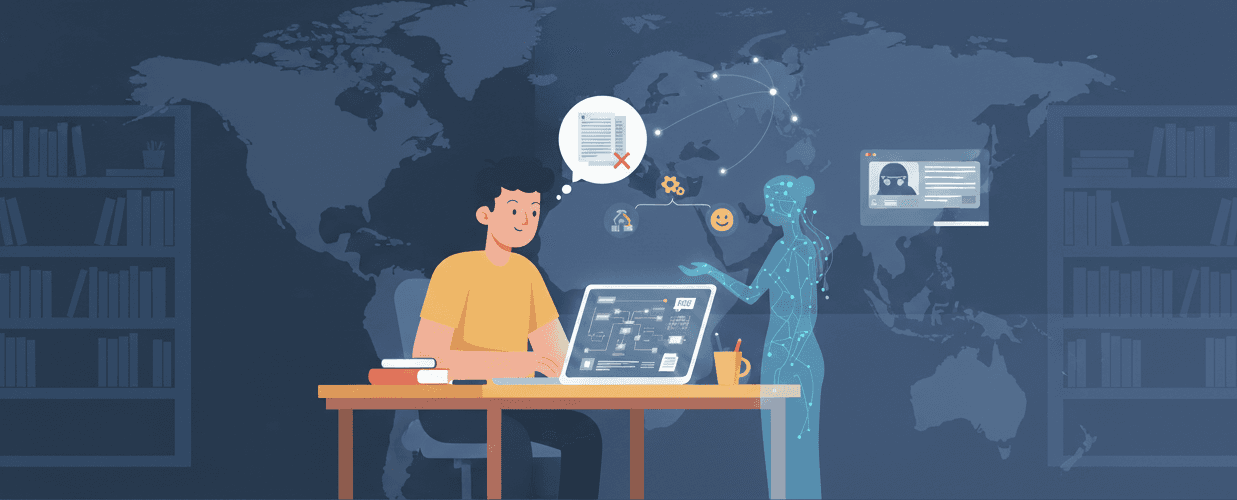5 min
Jul 18, 2023
Idleness is the cardinal sin of contemporary life; AI will disrupt this paradigm, too.
Coleman Numbers

Perhaps the future of Sloth will lie in sinning against what now seems increasingly to define us -- technology. Persisting in Luddite sorrow, despite technology's good intentions, there we'll sit with our heads in virtual reality, glumly refusing to be absorbed in its idle, disposable fantasies
-Thomas Pynchon, “Nearer, My Couch, To Thee” (1993)
Busyness serves as a kind of existential reassurance, a hedge against emptiness; obviously your life cannot possibly be silly or trivial or meaningless if you are so busy, completely booked, in demand every hour of the day.
-Tim Kreider, “The Busy Trap” (2012)
Coleman here. I've been thinking more and more about the intrinsic value of work--and the pleasures of laziness.
Three decades ago, Thomas Pynchon wrote about Aquinas’ mortal sin of sloth (”acedia” in Latin, a word that originally meant “sorrow”) and how its use transformed from the church’s notion of “loss of spiritual determination” to a secular, capitalist “Sin…against clock time." If modern life is, as Pynchon described 1800s Philadelphia, “a kind of high-output machine, materials and labor going in, goods and services coming out, traffic inside flowing briskly about a grid of regular city blocks," then laziness is as bad as sin gets.
By this reading, the good life is a zero-sum struggle between the virtues of productivity and the aberrancies of laziness. Even sleep, dreams, and unstructured thinking time are violations of the cosmic balance sheet that have to be requited elsewhere. This idea cemented itself by the early 19th century, Pynchon notes, and it's stuck with us since then.
Even by the 90s, Pynchon could only begin to imagine a world where laziness, thanks to highly disruptive and shocking technologies like VCRs, could be something other than ruinous excess. And then our elective laziness wouldn't be liberation via technology; instead it would be a rebellion against a more personal, modular version of the same high-output machine.
Busyness
Two decades after Pynchon and one decade before now, writer Tim Kreider (less well-known but still very clever) observed that all of us who bemoan our busyness still worship at the altar of productivity:
Almost everyone I know is busy. They feel anxious and guilty when they aren’t either working or doing something to promote their work. They schedule in time with friends the way students with 4.0 G.P.A.’s make sure to sign up for community service because it looks good on their college applications. I recently wrote a friend to ask if he wanted to do something this week, and he answered that he didn’t have a lot of time but if something was going on to let him know and maybe he could ditch work for a few hours…his busyness was like some vast churning noise through which he was shouting out at me, and I gave up trying to shout back over it.
What I’m about to say may be shocking, controversial, even offensively heterodox to some, but as the fearless social critic and incisive thinker that I am, I’ll say it anyway:
Nothing has changed. One recession, one pandemic, and several wars since Pynchon, nothing has changed.
To be clear: this isn’t about the single parents (or single people) working three jobs to make rent; it’s not about the desperate, poverty-line underpaid and overworked. As Kreider says, “what those people are is not busy but tired. Exhausted. Dead on their feet.”
I'm talking about the work culture of those of us who are lucky enough to choose our busyness. Because more often than not, we still choose busyness.
My college peers aren’t just taking full course loads—they’re also doing research projects, as well as working part-time, as well as playing in intramural basketball or volleyball or soccer leagues, as well as volunteering at church or community centers, as well as launching an Etsy shop, as well as dating, well as well as as well as—you name it. And now, whenever I have time to myself to eat, sleep, and hear my own thoughts over the soul-weathering din of life, I think of my incredibly successful and fit and proudly busy peers and I feel guilty.
I don’t think that feeling is foreign to most of us.
AI and Laziness
But AI could change that. AI, with its embarrassment of often-touted and yet-untapped riches, could cement the lesson that self-labeled lazy person Tim Kreider points to: “an ideal human life lies somewhere between my own defiant indolence and the rest of the world’s endless frenetic hustle."
This isn’t even a conversation about utopian benevolent super-AIs. The capacity to reduce work strain for many people is already here. Frankly, there are some number of tasks we all do that pretty dumb LLMs can already do. Lots of articles and podcasts have pointed out how nice it would be to outsource our inboxes to chatbots. (And let’s not pretend that most of our email exchanges aren’t already soulless, canned feedback loops of professional jargon.)
What about memos and agendas and company regulations? What about email and social media campaigns and ad copy? What about biweekly newsletters?
Sure, maybe we’ll see an explosion of superfluous and unthinking AI content. When the dust clears, we'll see that many of those tasks we automated were never crucial in the first place—and we’ll stop doing them.
More importantly, as AI comes to dominate more and more work activities that we view as critical to economic output—as we get ousted from that sacred equation—time will come to mean something quite different to us.
Right now I can write a draft of a blog post in an hour, get something polished enough for the newsletter in three. AI will soon accomplish that a lot faster and the results will be indistinguishable. This is, on some level, extremely depressing. Maybe I’ll just descend into a nihilistic form of Pynchon’s “Luddite sorrow”, resigning myself to obsolescence in the same way a guy whose been rejected by his female best friend resigns himself to platonicism—no longer hoping but never moving on.
But I hope that I do something rather different, and I hope the same thing for you—whatever your role is, whenever and wherever AI comes for you.
I hope that I ask myself how long it takes to bake a souffle. Can I do that in an hour, or three? Where can I walk? How many people that I love can I call? Can I learn carpentry? Play the saxophone?
This vision has a lot of roadblocks before it. But why not dream for a future where laziness becomes a treasure we all inherit?
If we do that, maybe, for the first time in a long while, we can have some quiet. We can have some time to ourselves.



